Trust & Security
USDOT Compliance
The USDOT issued FAQs on Aug 19, 2011 (last revised Dec 12, 2016) regarding enforcement of the Second Final Rule on Enhancing Airline Passenger Protections (EAPP #2). EAPP #2 includes the “Full Fare Rule” (Price Advertising and Opt-Out Provisions 14 CFR 399.84, published Dec 20, 1984), requiring fares advertised to include fees and taxes.
PROS conducted extensive research on the complaints available at the DOT’s website regarding guidance on advertising and concluded the following:
- airTRFX is in compliance disclosing full fares since they are gathered from the booking engine
- No complaint was found regarding disclosure of special conditions being one click away from the advertised fare
Disclosure of Essential Terms
USDOT requires that ads prominently disclose essential terms in connection with the purchase of passenger air transportation. Examples and required disclosures include, but are not limited to, the following:
- Refundability/Change Conditions – advertising must disclose if a fare is non-refundable and if changes are allowed, and specify the fees for refunds or changes if allowed
- Blackout Dates – advertising must disclose if seats are not available at the advertised fare on specific dates during the term of the sale
- Length of Stay/Advance Purchase – advertising must disclose any minimum and maximum stay restrictions (such as a Saturday-night stay requirement), or other time-based purchase and use restrictions (such as a two-week advance purchase requirement).
Moreover, terms applicable to services other than air transportation that apply to an air-inclusive package, such as hotel and cruise double occupancy requirements, must be prominently disclosed.
PROS Technical Compliance Features
1. Data Logs
PROS logs all data in DataCore (our data management system) to ensure an audit trail that demonstrates rigorous effort to maximize availability of fares displayed:
- Fare
- Flight itinery
- Timestamp of collection
- Market (Point of sale of collection)
- URL of collection (booking engine)
- Device
- Screen resolution
- Browser of collection

2. Streaming Fare Updates
If a user clicks a displayed fare, but the fare is no longer available in the booking engine, that user’s search will activate the FareNet pixel to collect the new low price and update the displayed fare to match the new result. All PROS products have immediate fare updates for every user search in IBE.

3. Fare Expiration
Set your fare expiration from 24-48 hours to automaticically expire fare eligibility for display after set period of time.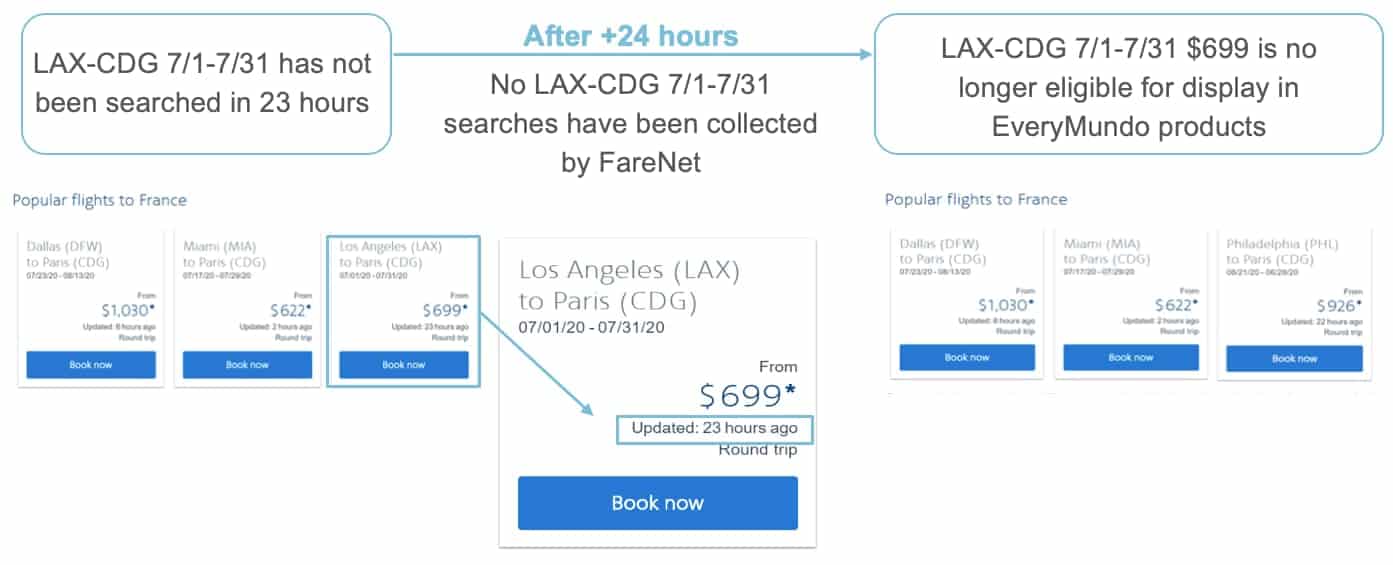
4. Disclosure to User
Customize “fares from” disclosure, as well as the fare timestamp and terms and conditions below each airModule.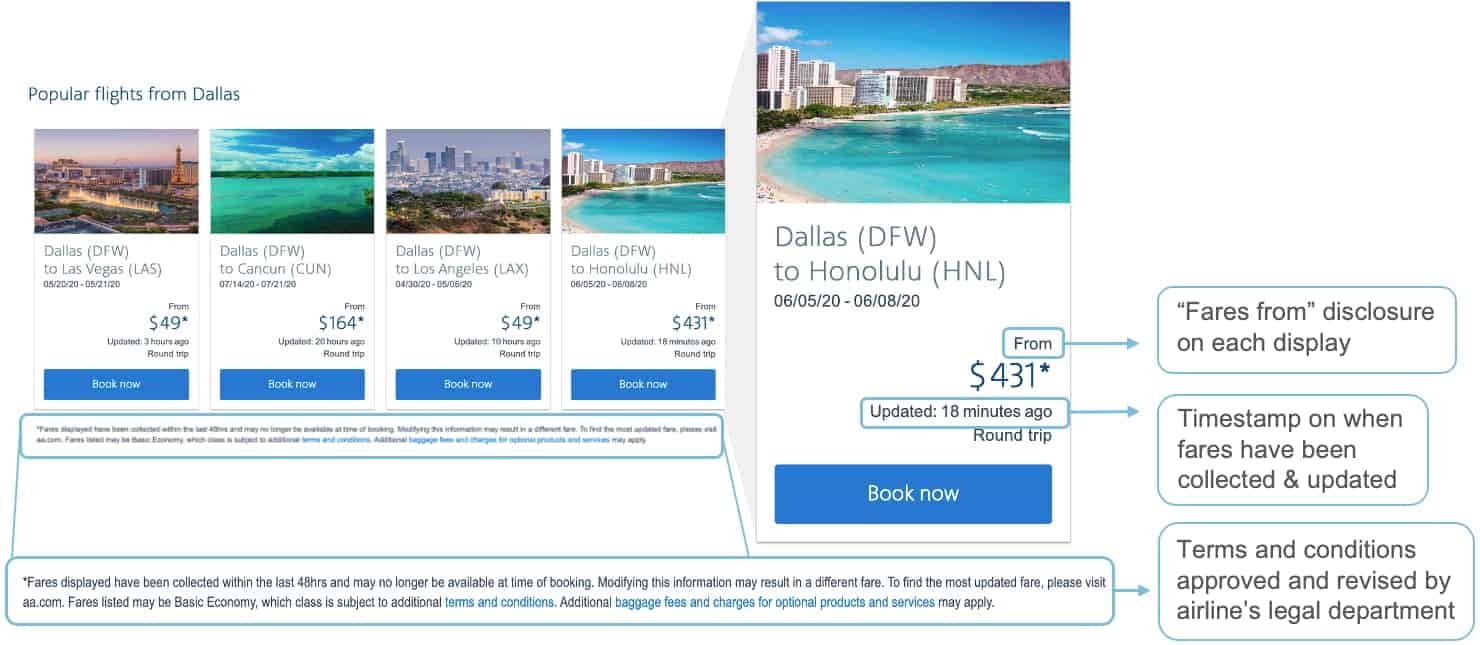
Additional Compliance Features
Adjust titles of airModules to indicate “fares seen by others”
Modify the fare expiration window from 48 to 24 hours.
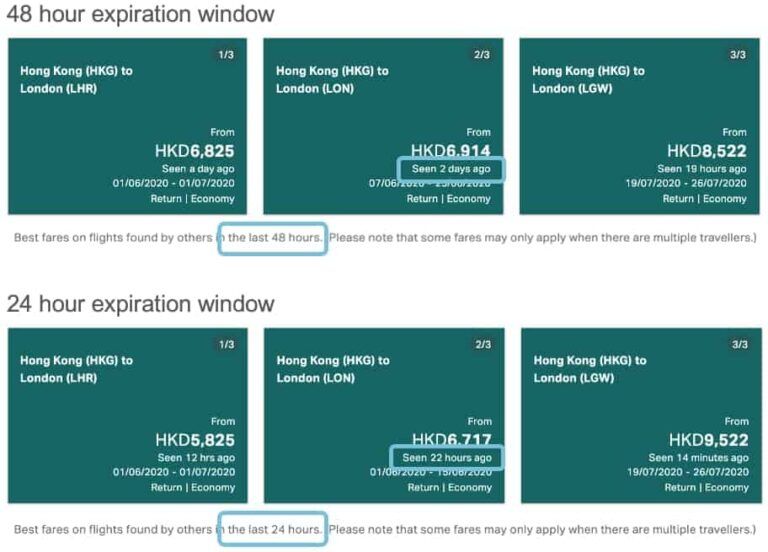
Variations of timestamp message: “Fare seen by others XX ago”
Change the message of the timestamp of fare collection.
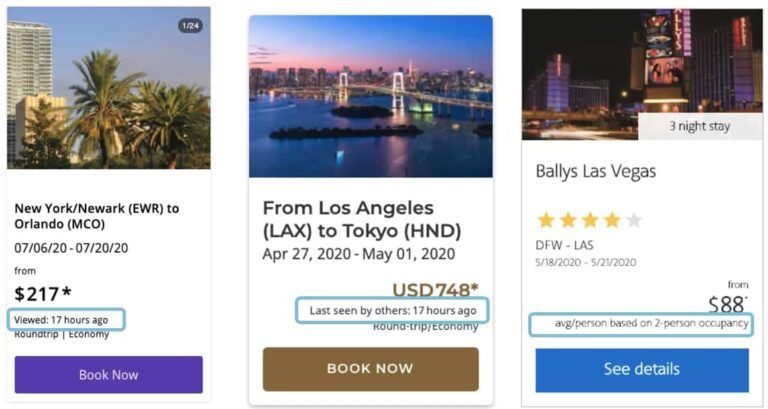
Change CTA to custom message
Update “Call to Action” message to disclose additional transparency of fare updates
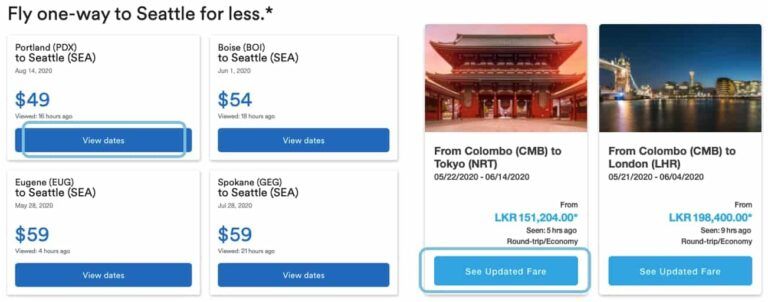
Extended Terms and Conditions below assets
Extended terms and conditions in Fare airModules and Media Assets (eg. Display Flashtalking Banners)
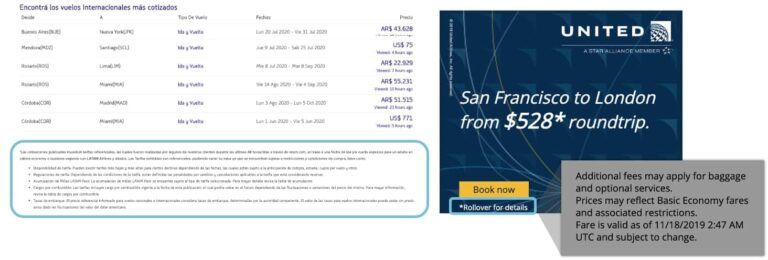
Extended Terms and Conditions in Custom Pages
Custom Pages with detailed Terms and Conditions linking from all Fare airModules.
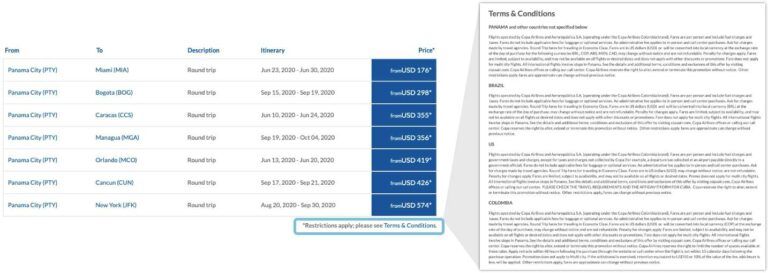
Change fare expiration window
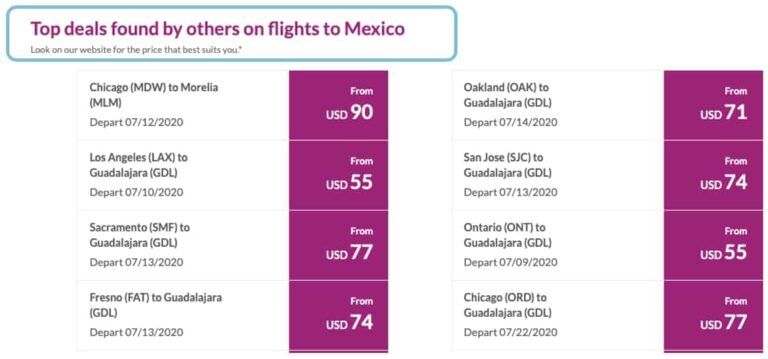
Additional disclaimers in Booking Pop-up
Additional disclosure message in Booking Pop-up, triggered after user has clicked on a fare.
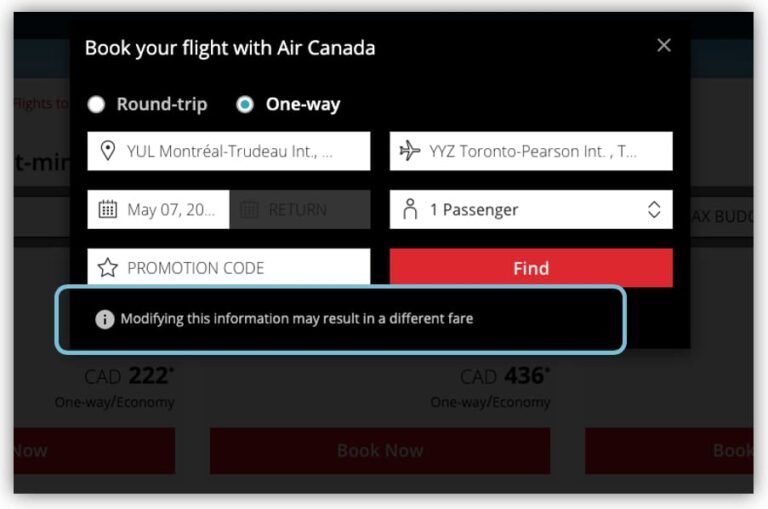
Additional Fare API integrations
Additional fare feed integrations to supplement fare collection, completeness and refresh (eg. Google ITA/QPX)
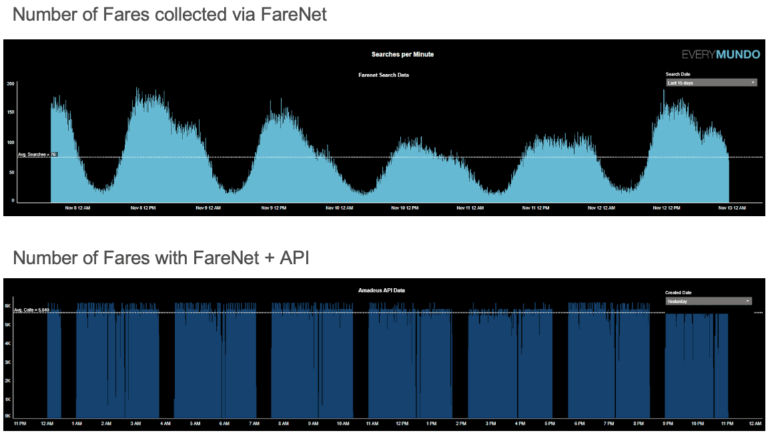
Tealeaf Cookie ID collection
Tealeaf ID collection to track fare collection. PROS can provide specific IDs to review Booking Engine snapshots on when fares were collected
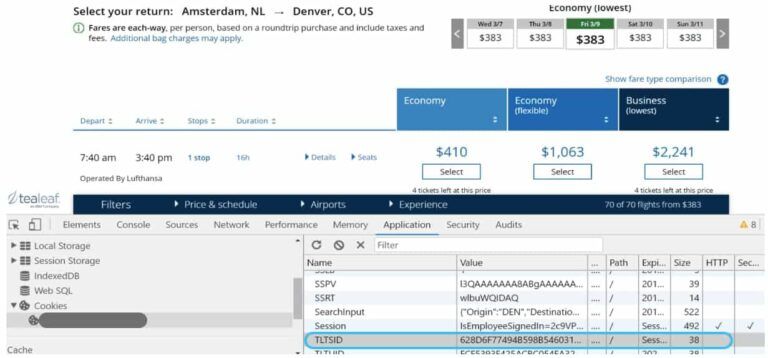
Exclude collection of fares when Number of Seats is exposed
Exclude fare collection and distribution with a specific number of seats left, if exposed in the Flight Results Page (where FareNet pixel collects information)
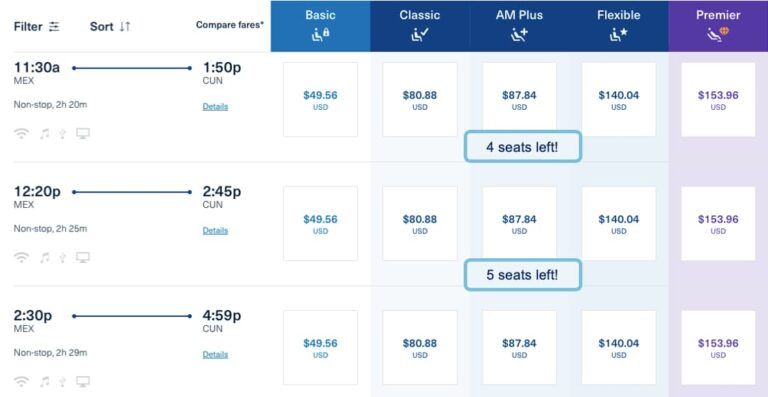
FareNet USDOT Compliance
FareNet is a proprietary pixel that collects flight and fare information based on user search activity in an Internet booking engine (IBE). As users search for fares, FareNet captures the lowest fare per search and streams the fare to all products deployed. FareNet also excludes fares meeting criteria of ineligibility, e.g. promo code fares.
Rules on Aviation Advertising
The USDOT includes Internet advertising enforcement in this regulation, as indicated by FAQs question IX.15 “How often should a carrier update an Internet advertisement to ensure that a ‘reasonable number of seats is available’ for purchase?”. The following discussion reviews airTRFX in the context of the USDOT’s answer to FAQ IX.15. FAQ IX.15 comprises three paragraphs:
FAQ IX.15 paragraph 1:
The rule of thumb for when an advertisement should be updated or removed because a reasonable number of seats is no longer available at the advertised fare depends on several factors. Generally, carriers should be monitoring the rate at which the inventory at the advertised fare is selling. Once the seller determines that a reasonable number of seats is no longer available, it must take prompt action to discontinue the ad, or to modify the ad to make clear to which destinations or date ranges the ad applies.
airTRFX consideration
- Assuming that fare content displayed in airTRFX can be considered an “ad”, airTRFX removes a certain fare once the system detects that the fare is no longer the lowest fare available for the given route on a specific date of travel (and duration of travel for round trip price display).
- If the airline displays in its booking engine the number of seats remaining for a flight at a given price, airTRFX can remove a fare once the number of tickets available for the flight falls below a threshold defined by the airline.
FAQ IX.15 paragraph 2:
“Prompt action” will depend on the type of advertisement. If it is a print advertisement, the print ad must be pulled as soon as practically possible. If the advertisement is an Internet banner ad on the carrier’s own website, the ad must be pulled as soon reasonably possible, which should be quickly, e.g., within 24 hours or less. If the Internet banner ad is on another website, the Enforcement Office realizes it may take more time to pull that ad, but such an ad should be pulled or modified as soon as possible (in no case in more than a day or two). In Internet fare listings the available fare must be updated immediately. For fare specials that are posted on Twitter or Facebook, as soon as there is no longer a reasonable number of seats available at those fares, the Twitter feed and Facebook feed should be updated to reflect that those fares have sold out, or the Twitter posting or Facebook posting should be removed from the carrier’s feed.airTRFX consideration
- Again, assuming that fare content displayed in airTRFX is an “ad”, it would likely qualify as either a “banner ad on the carrier’s own website” or an “Internet fare listing”
- For the former, an inaccurate fare advertised requires the advertiser to revise or remove the fare within 24 hours; for the latter, an inaccurate fare listed requires immediate revision or renewal.
- Any fare displayed in airTRFX that proves to be inaccurate (i.e. a fare seen in airTRFX differs from the fare seen on the subsequent page in the booking engine) is instantly replaced by the new fare seen in the booking engine Fare Selection Page.
FAQ IX.15 paragraph 3:
When evaluating whether a fare advertisement is updated at a reasonable time, the Enforcement Office will look at the advertisement medium, the rate at which the advertised fare sold, the efforts of the carrier to monitor the availability of the fare and the efforts of the carrier to remove and/or modify the fare as soon as the fare is no longer reasonably available.airTRFX consideration
- Because each fare viewed in the booking engine is also viewed by airTRFX and collected if the lowest fare for a flight has changed, PROS is continuously monitoring each fare and will remove or modify an inaccurate fare immediately once detected or based on any criteria determined by the airline.
- Given the adherence of airTRFX to the criteria set forth in the answer to the USDOT FAQ IX.15, PROS concludes that airTRFX is fully compliant with the pertinent sections of EAPP #2, more specifically Title 14 CFR 399.84.1.
Case 1: Air France, November 2012
“DOT’s Aviation Enforcement Office found that Air France violated the Department’s price advertising rule that requires carriers to inform consumers of the total price, including all taxes and fees. Although Air France promised to redeem loyalty program miles for tickets, it initially hid from frequent fliers the monetary amount that they were still required to pay which covered not only government taxes, but also substantial fees Air France chose to label as “fuel surcharges” that were included under a heading described as “taxes.” Those fees could amount to more than half the price of certain purchased coach tickets. This was unfair and misleading to consumers.”
Case 2: Delta Airlines, October 2014
“We find that Delta Air Lines, Inc., violated 14 CFR 399.84(b) by publishing each way airfare advertisements that were only available when purchased for roundtrip travel without advertising such fares as “each way” fares and by failing to clearly and conspicuously disclose the round-trip purchase requirement prominently and proximately to the each way fare amount.”
Ongoing Regulatory Compliance Efforts
PROS participates in ongoing sessions with attorneys to stay up-to-date with international standards and regulations (USDOT, GDPR, CAAC, etc.)
We are constantly developing product enhancements including self-service configuration capabilities and technical flexibility to accommodate regulatory requirements as interpreted by each airline customer. We produce reactive product updates to comply with regulatory changes at no cost to our airline customers.
PROS accommodates our customers’ interpretation of international regulatory compliance.
Sources:
Transportation.gov air consumer advertising
Transportation.gov DOT fines Air France for violating price advertising rule
Transportation.gov sites
Note: PROS did not find any source indicating special restrictions and conditions having to be one click away from the fare.
